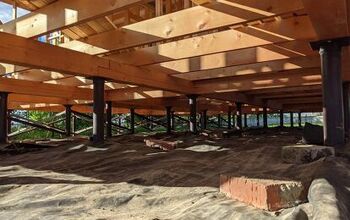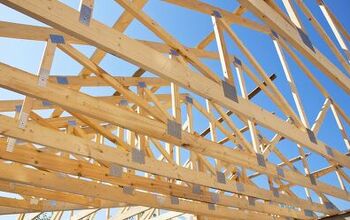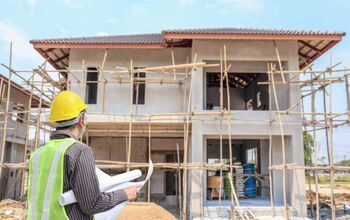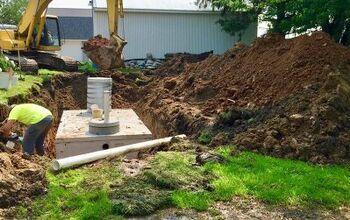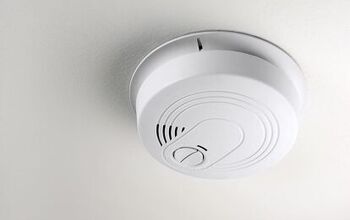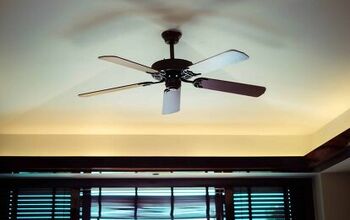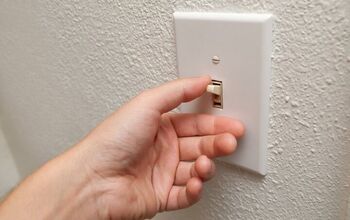How Do I Make My House Quieter?

Everyone wants a home that gives them a quiet place to relax and unwind. But if your house isn’t quite the peaceful retreat of your dreams, what can you do? Whether you’re dealing with a small space, a busy street, or a house that echoes like the Grand Canyon, you can make your house quieter.
Add things to your home that absorb sound, including drapery, rugs, and soft furnishings. A water feature helps drown out unwanted ambient noises. Creating a quiet space or implementing quiet hours provides peaceful moments. For more severe sound issues, consider upgrading windows and doors, adding insulation and drywall, repairing noisy pipes and floors, and sealing all unwanted cracks, gaps, and holes.
Why Is Your House Noisy?
Before you know how to make your house quieter, you need to figure out why it’s so noisy in the first place. A home can be loud for many reasons, some easier to fix than others.
For example, if you live on an extremely busy street, it might be more challenging to quiet things down. But if the main source of noise in your home is a blaring television, you have more control.
Here are some common reasons people consider their homes noisy:
- Lots of people in and out of the house all of the time
- Loud electronics like televisions, radios, and phones
- A location on a busy street with lots of traffic
- Construction materials and elements that contribute to noise
- Lack of fabrics, like curtains, rugs, and other soft surfaces
- Old appliances or other mechanical systems that keep making strange sounds
- Smaller footprint, so everything seems to happen in the same place
Do any of these noisy house culprits ring true when you think of your own home? Maybe you recognize several reasons on the list as to why you’re constantly crawling under a blanket or putting your head under your pillow.
However, spending all of the time you’re in your house hiding under a pillow isn’t realistic. Therefore, it’s time to figure out some more practical solutions to create a quieter home.
8 Tips To Make Your Home Quieter
Solutions to reduce noise in your home range from the simple (hang curtains) to the more involved (add drywall or insulation). What you choose to do will depend on several factors, including your specific noise issues, budget, and skill level.
However, even if you’re working with limited resources, there are a few things you can do right away to create a quieter home.
1. Add Surfaces That Absorb Sound To Your Design Plan
If your home lacks things like rugs, curtains, furniture, and various decor, it can lead to echoes and an overall louder atmosphere. Adding absorbent elements where they make sense can help dial down the noise.
Hang curtains, add rugs, and incorporate soft furnishings into your design. Toss a blanket across a metal chair in the living room, or add a runner to your tile kitchen floor. Books also act as sound absorbers. So if you love to read, stock a couple of bookcases with your favorite reading material.
2. Use A Fountain Or Water Feature
To help drown out outdoor noises, a fountain or water feature helps by replacing unwanted noises with a more pleasant one. The sound of trickling water is often soothing, adding to a calmer environment.
This is a simple trick that’s easy to do if you want to create a quieter space to relax in your backyard. The water can help drown out traffic noises and other unwanted sounds. (Other options are acoustic fencing, large vegetation, or concrete or stone walls.)
You can also use a water feature indoors to help reduce unpleasant sounds. It doesn't need to be a huge, elaborate fountain. You can find many freestanding or tabletop options that will provide the desired effect.
3. Create A Quiet Space Or Time In Your Home
Sometimes, too much chaos and noise in a home builds and leads to an overall feeling of a stressful life. But if you can put a few simple habits in place to provide yourself some moments of peace and quiet, it goes a long way to changing the overall mood and tranquility of your home.
If the noise in your house is more a result of a busy household (full of people and their electronics), create an escape. Perhaps you can devote a spare room as a quiet retreat. Choose a room that is somewhat removed from the busier areas of the house.
Use some of the other ideas on this list for reducing noise, such as a fountain or sound-absorbing materials, to help mask unwanted sounds. If your home is smaller and doesn’t have a room to spare, can you create a retreat on the back patio? Or is it possible to make over a small shed?
If these options aren’t viable, then it’s time to create a quiet time in your home. Perhaps it’s a one or two-hour window each evening that the whole household knows is quiet time. During this time, televisions are off, kids are doing homework or playing in the backyard or at a friend’s house. You get to decide how this quiet time will work best for you and your family, and then it’s important to implement it consistently.
4. Rethink Your Room Layout
Sometimes, your home may be louder than it needs to be because of poor planning. For example, you put your home office right next to the family room where everyone gathers to watch movies, play games, and other noisy activities. At first, you think it’s a way to stay close to the family -- until you realize that’s the exact opposite of what you need while you’re working.
Did you create a cozy reading nook in the corner of the play room because you had visions of keeping an eye on the kids while you caught up on your latest novel? (Reality soon paints a very different picture.)
Basically, these are examples of things that simply don’t go together. Make sure to carefully plan how your rooms function, and consider what you want to do in the connecting and adjacent rooms.
5. Assess Your Windows And Doors
Upgrading doors and windows not only does wonders for your home’s energy efficiency, but it can significantly reduce noise levels, too. Add door sweeps and weather stripping to exterior doors. Also, consider adding door sweeps to interior doors to block sound traveling from room to room.
Depending on how much noise you can tolerate, you might only do this in rooms like bedrooms or bathrooms. Check the caulk around windows to ensure it’s in good condition.
One idea would be to get an energy audit for your home. Although the main purpose is to find places your home could be more energy efficient, many of these things also affect sound levels. (Things like caulking around windows and doors, sealing gaps, and adding insulation.)
6. Repair Noisy Floors And Pipes
Do the annoying noises in your home come from things like squeaky floors or rumbling pipes? It’s time to do some repairs. Unless you have the utmost confidence in your skills, it’s worth hiring a professional to help you with these issues.
For noisy pipes, whether plumbing, ductwork, or other systems, you’ll have a few options to help ease the noise. For example, replacing certain portions of rigid ductwork with insulated flexible ductwork can decrease the noise that carries through the house.
Water hammer arrestors can prevent clunking noises in certain pipes. Talk to an HVAC specialist, plumber, or other appropriate professional to determine what you can do about your specific sound offenders.
7. Seal Cracks, Holes, And Gaps
You can look for gaps and holes yourself, or as mentioned previously, get an energy audit to help identify all the culprits. Even gaps around outlets and switch boxes can add to noise levels because they allow more sound to travel between rooms.
Gaps or cracks near doors, windows, or in exterior walls allow in more noise from outside (not to mention cold air and heat.) Seal these openings, and you’ll likely notice a reduction in noise and a decrease in your energy bills.
8. Add Insulation
Adding insulation in walls and your attic helps reduce noise in your home. For additional sound reduction, consider installing drywall where you need a more dramatic decrease in noise levels.
These tips are obviously more involved steps, and you may or may not need a pro’s help to do them. However, if you deal with significant noise issues in your home, these could become top priorities when trying to achieve a quieter house.
A Few Simple Steps To Enjoy A Quieter Home
Make your house quieter with a few simple touches like adding curtains and rugs or implementing a water feature. Working out a quiet schedule with other members of the household or creating a quiet zone in your house can also help your home feel more peaceful.
For significant noise issues, you may need to embark on more extensive projects, including adding insulation and drywall. Upgrading windows and doors aids in sound reduction, as does sealing gaps, cracks, and holes throughout your home.
If you’re not sure where the sound is coming from, an energy audit could offer you some clues. Wherever your home is letting energy escape, it’s also likely letting excess sound in. Start with the simple fixes to see how the noise level changes in your home. Then work your way up to the larger fixes if and when you feel they’re necessary.
Related Guides:

Stacy Randall is a wife, mother, and freelance writer from NOLA that has always had a love for DIY projects, home organization, and making spaces beautiful. Together with her husband, she has been spending the last several years lovingly renovating her grandparent's former home, making it their own and learning a lot about life along the way.
More by Stacy Randall










